Get Our Latest Updates
Alpro Group Head Office & Distribution Centre
Unit V1-A, Lot 45880, Jalan Techvalley 3/2, Sendayan Techvalley, 71950 Bandar Sri Sendayan, Negeri Sembilan.
health
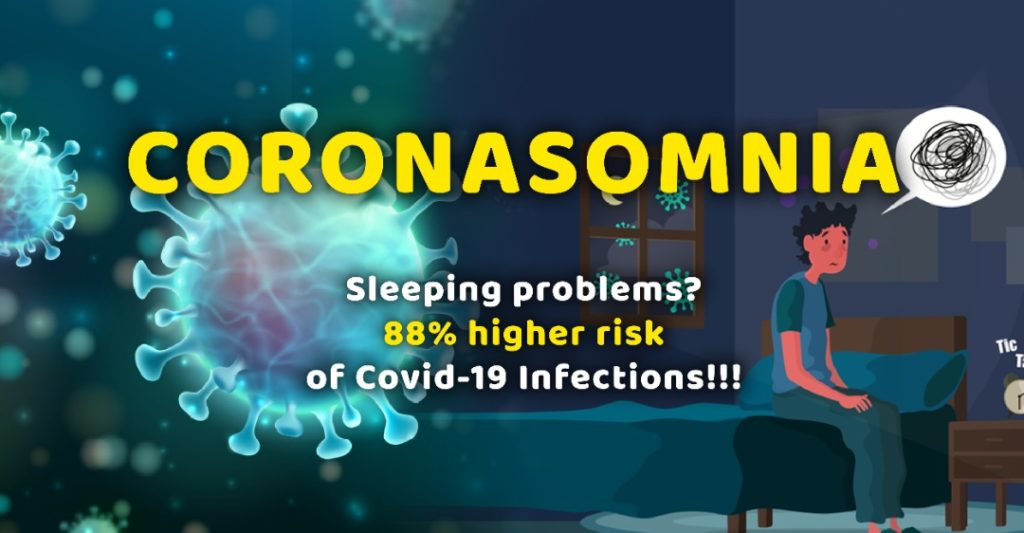
Mr. Lee had never been having issue falling asleep quickly, but for more than 3 months last year, the 33 years old took more than two hours to doze off on some nights. His sleeplessness began last year during the Covid-19 pandemic – “Looming retrenchment is going on in the company, I was worried about losing my job, and working from home made me feel alone without much interaction with my colleagues…”
Mr. Lee is among those whose sleep routine has been disrupted during the pandemic.
Insomnia or sleep problems ain’t a new thing. Lack of sleep is such a widespread problem that the CDC has called it a ‘public health epidemic’ (1). With the stress, grief and anxiety of Covid-19 and its impact on daily life, people are reporting more sleep problems than ever before. Around 4 in 10 people have reported trouble sleeping during the pandemic (2), which the sleep expert has labelled these sleep problems ‘coronasomnia’, a portmanteau of coronavirus and insomnia.
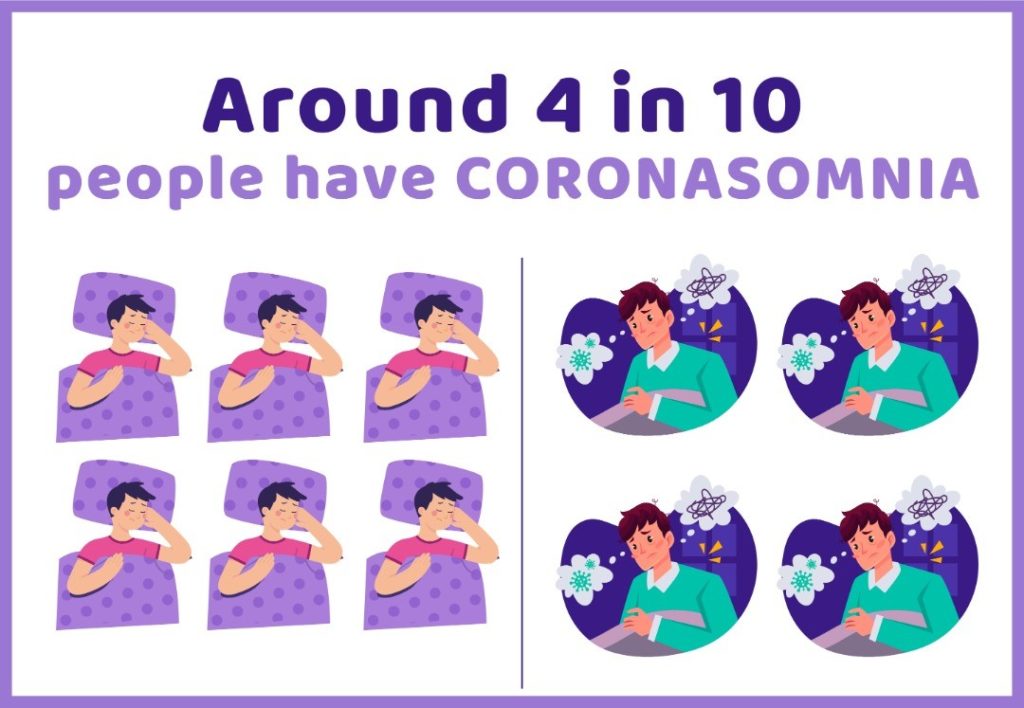
University Malaya (UM) consultant psychiatrist Dr Rusdi Abd Rashid said that the number of individuals suffering from sleep problems have been increasing since the movement control order (MCO). The uncertainties during the MCO period such as financial insecurities have caused the anxiousness and despair which subsequently affecting their sleeping patterns. Besides that, the healthcare workers also suffering from sleep problems as a result of developing psychological stress while managing their patients.
Coronasomnia is characterized by an increase in sleep problems during the pandemic which is due to anxiety, depression and stress. While insomnia is often linked to anxiety and depression, coronasomnia differs from traditional insomnia because it’s related to the Covid-19 pandemic. The symptoms/stressors contributing to coronasomnia started and gradually intensified during the pandemic, which are unique to living in a global pandemic.
The Covid-19 pandemic has affected nearly every aspect of everyone’s daily lives. Parents and children adjusted to remote schooling while millions of workers are transitioned to remote work, furloughed or lost their jobs entirely. There is an ongoing state of uncertainty over job security, health and the anticipation when things will return to normal again. Dr. Abinav Singh, board-certified sleep medicine and internal medicine Medical Director of the Indiana Sleep Center has summarized these stressors into mnemonic device “FED UP”:
Financial stress
Emotional stress
Distance from others
Unpredictability
Professional concerns
Lack of sleep at night, severe sleep problems may increase risk of Covid-19 infection. A study has reported that having sleep problems was associated with 88% greater odds of Covid-19, whilst with every 1-hour increase in sleep duration at night, there was 12% lower odds of Covid-19. Furthermore, those who reported experiencing work-related burnout everyday were 2.6 times more likely to report having Covid-19 and for a longer time, as well as experience a more severity Covid-19 infection (3).
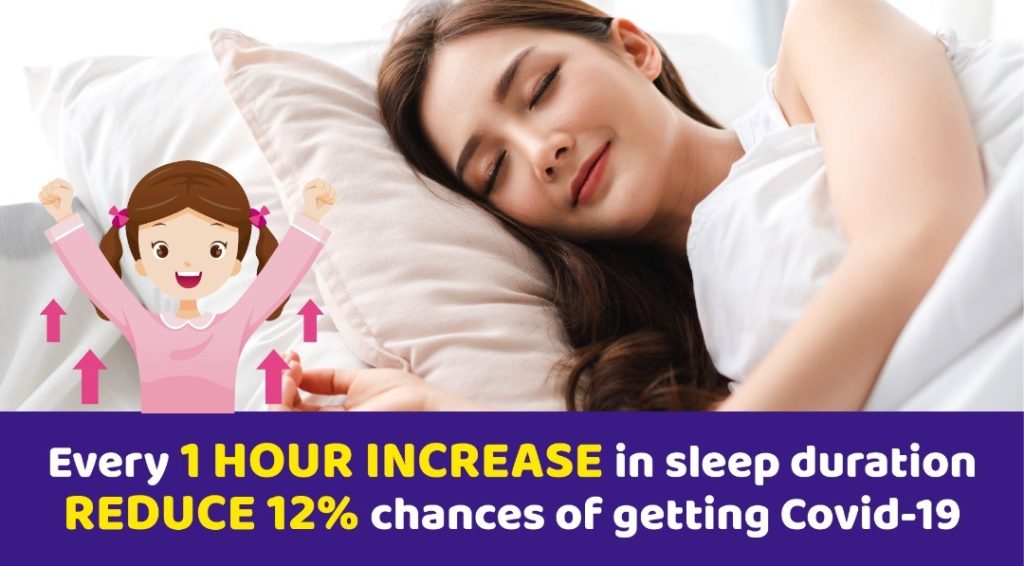
Several studies have shown that short sleep duration is highly associated with greater risk of acute infectious diseases, such as pneumonia and common cold. The mechanism underlying these associations remains unclear, but it has been hypothesized that lack of sleep and sleep disorders adversely influence the immune system by increasing proinflammatory cytokines and histamines. Additionally, when exposed to Covid-19 infection, a series of proinflammatory cytokines were activated, increasing the risk of developing a cytokine storm. On the other hand, burnout may directly or indirectly impair the immune system and changing cortisol levels, increasing the risk of getting infections (3).
Sleep is an important period of bodily rest which plays a crucial role in our immune system. Several factors are involved during sleep:


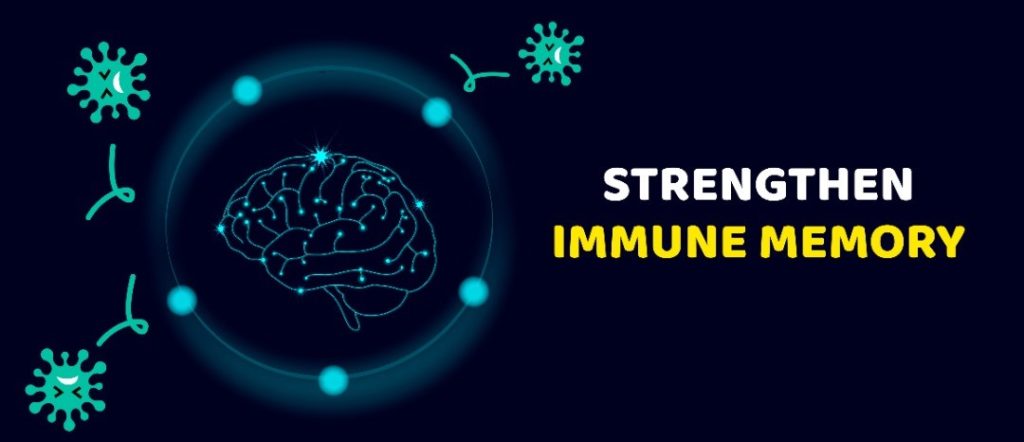
Studies have also shown that sleep can improve the effects of vaccines, demonstrating sleep’s benefits for adaptive immunity.
Vaccination works like a ‘teacher’ which effectively teach the immune system to recognize and attack the specific antigen.
Studies of vaccines for hepatitis and swine flu (H1N1) have found that the body’s immune response towards the vaccine is weaker when they don’t sleep the night after receiving a vaccine. And this may reduce the vaccine’s protection. Some studies have found the reduced vaccine effectiveness in adults who did not manage to get at least seven hours of sleep (5). Without insufficient sleep, the body does not have enough time to develop immunological memory, potentially leaving them unprotected despite having been vaccinated (6).

Getting sufficient amount of uninterrupted sleep every night can help to strengthen your immune system. In spite of the different challenges, there are a handful steps that can promote better sleep during the Covid-19 pandemic.
Establishing a routine can facilitate a sense of normalcy even during stressful times. It’s beneficial for your mind and body to adapt to a consistent sleep schedule, such as fixing time to get up everyday, wind-down time to relax and get ready for bed, as well as a consistent time to turn out the light and try to fall asleep.
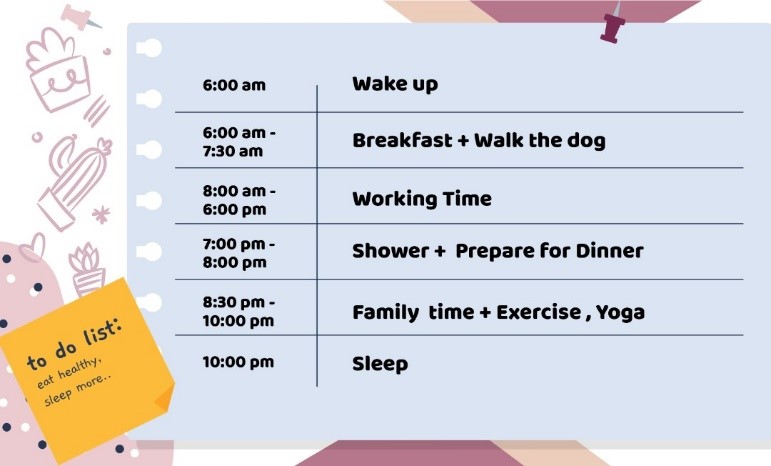
2. Utilize Relaxation Techniques
Deep breathing, stretching, yoga, mindfulness meditation, calming music or quiet reading are a few ways of relaxation that can be part of your routine.
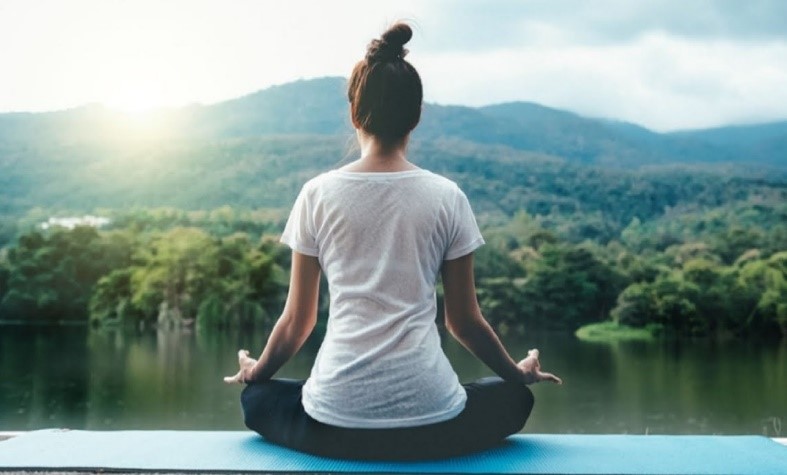
Avoid becoming overwhelmed by coronavirus-related news also an important relaxation strategy during this pandemic.
3. Food compounds that help with sleep
Dairy food containing tryptophan such as a warm glass of milk has the sleep-inducing effects and help to regulate our sleep cycle.
Others such as potassium, magnesium also have positive impact in sleep. Bananas containing potassium can help to keep one from waking up during the night and reduce muscle spasms which can disrupt sleep. Almonds, pumpkin seeds that are magnesium rich, regulates the neurotransmitters by binding to GABA receptor, inhibiting anxiety and hormone melatonin that guides sleep-wake cycles in the body.
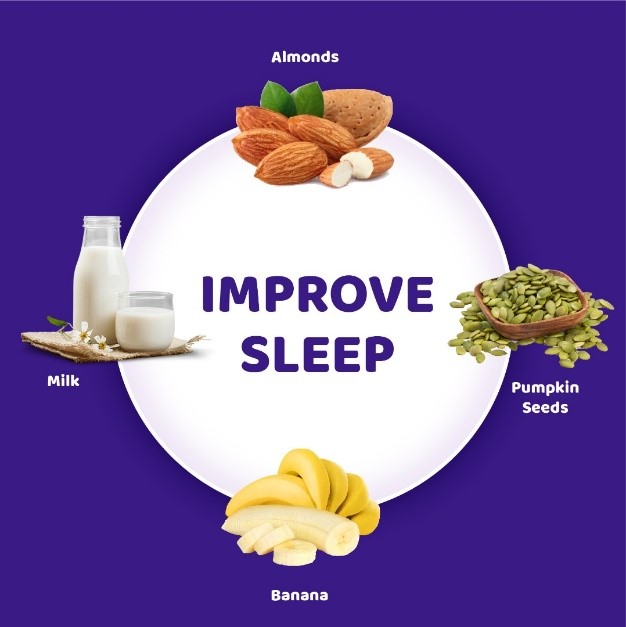
Lately, researchers have develop an innovative process to isolate milk protein hydrolysate, named Lactium, which is clinically proven to gently manage emotional state as well as improve sleep quality. Lactium acts effectively and naturally on the central nervous system which has no side-effects and is not addictive. Besides that, it is hypoallergenic and does not have any toxic effect on the body, even at high doses. It is completely natural, and therefore totally harmless (7).
Healthy sleeping habits can help both prevent and overcome infections. Sleep is an immune therapy for your mind and body. This approach does not only help in health and well-being but also important relevance to vaccination policy.

References:
Get Our Latest Updates
Alpro Group Head Office & Distribution Centre
Unit V1-A, Lot 45880, Jalan Techvalley 3/2, Sendayan Techvalley, 71950 Bandar Sri Sendayan, Negeri Sembilan.
Alpro Alliance Sdn. Bhd. (1015456-V)